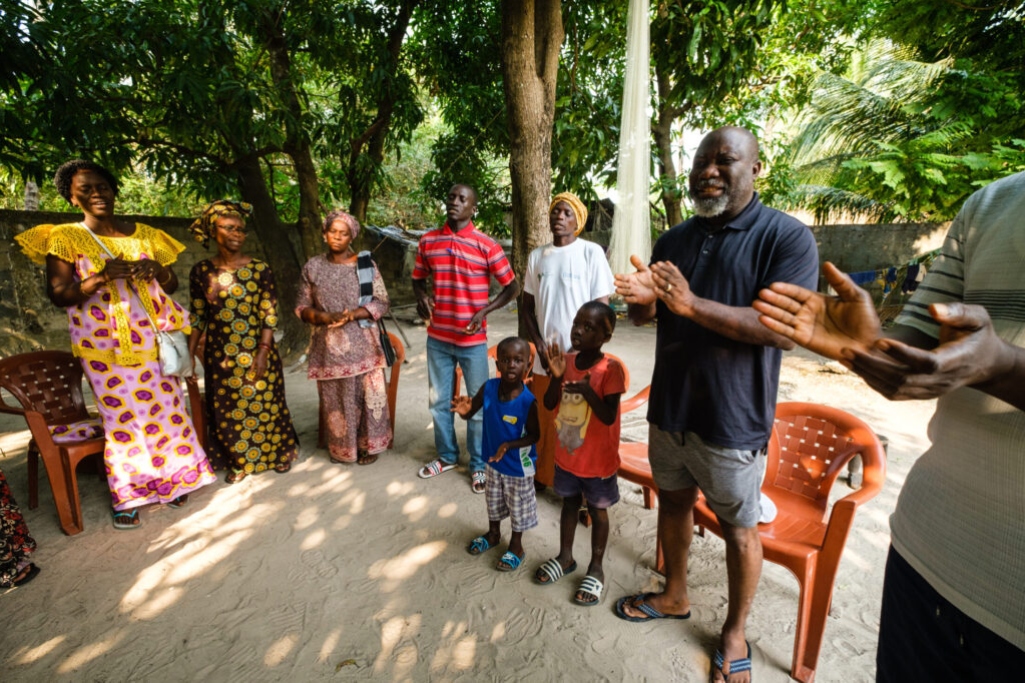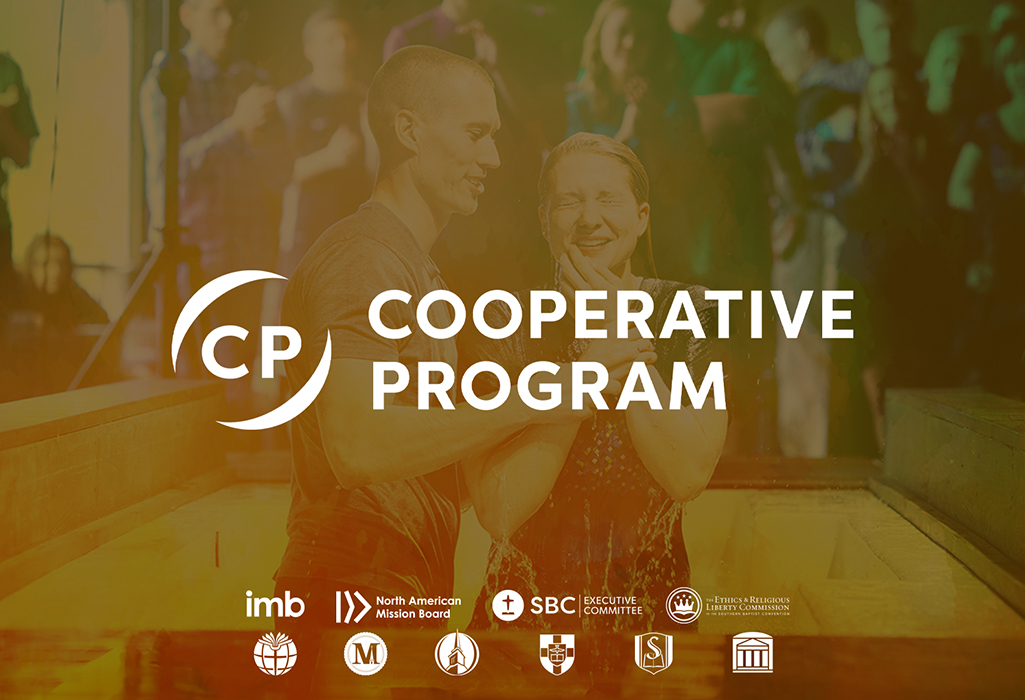
“Readers should be careful not to make assumptions when reading IMB’s annual statistical report nor to compare it year-to-year. For security reasons, the total number of personnel and close partners in each part of the world who provide data for this report is not publicly released.”
This disclaimer appears in the final pages of the International Mission Board’s Annual Statistical Report. It’s a reminder that among the more than 3,500 IMB missionaries serving around the globe, there are many who cannot be named, whose stories cannot be shared, and whose very presence in a country cannot be acknowledged.
Josh and Madison* embraced that lifestyle from the beginning of their missionary service. “When we started talking to the (mission) board,” Josh said, “the consensus we got was that people with our kind of background, with a secular degree and work history, need to go to one of those parts of the world that, you know, the guys out of a pulpit just can’t go.”
These missionaries, originally from Southern Illinois, are serving in a region of the world known as Central Asia. This massive territory stretches from the Turkish shores of the Aegean Sea all the way to the western tip of Mongolia. Its terrain is formidable, with vast deserts and endless mountains.
Josh described the spiritual climate in a way that can feel as imposing as the landscape. “There is this veil of Islam. And the darkness that it brings runs really thick.”
Because of challenging conditions in places like these, an estimated 3 percent of mission work conducted from all Christians goes to the unreached. The IMB runs counter to this trend, with its historical commitment to go to difficult places and reach unreached people. IMB’s most recent data estimates more than 80 percent of its missionary teams are focused on reaching unreached people groups.
The IMB’s Project 3000, launched at the 2023 SBC Annual Meeting, seeks to send 300 missionary explorers to some of the hardest to reach places on the globe to research and engage 3,072 of the last identified unengaged people groups on earth.
Difficult terrain
After serving in this region for nearly a decade, Josh and Madison have learned that reaching people here with the Gospel can be as challenging as traversing the mountain ranges. Overcome one obstacle, and there is another one standing behind it.
“They directly contest the deity of Christ, and even if we get past that, they directly contest the death of Christ,” he said. “It’s not the things that they don’t know or don’t believe. It’s that they specifically believe the opposite and are taught in the opposite direction.”
Yet despite the challenges, Josh and Madison have found that the culture also presents many opportunities to build relationships and share about Christ. In a land where relationship and hospitality are highly valued, being the American family leads to many open doors into neighbors’ homes.
The couple has learned that many in their country desire to host the Americans out of a sense of cultural honor, but Josh said they are now praying God would redeem that desire for His purposes and their salvation. “We want to see them host us because they want to enjoy fellowship because they have the Spirit of God,” he said.
Slowly but surely, they are seeing that prayer come true. God is opening doors of hospitality and relationship that are leading to ongoing Gospel conversations. After a few years on the field, the incognito missionaries saw their first salvations. And recently a man Josh has been discipling has engaged more teaching and care with the young church.
Technological (dis)advantages
While missionaries with elevated security risks are nothing new, the increase in the number of IMB missionaries serving in these circumstances is. The growing number of individuals and couples standing “behind the curtain” has been noticeable to observers of the quarterly IMB Sending Celebrations. At the most recent Southern Baptist Convention Annual Meeting in New Orleans, 71 percent of new missionaries being appointed could not be publicly identified due to security concerns in their future locations.
According to IMB President Paul Chitwood, “About 60 percent of our personnel currently serve in countries where they can’t get a missionary visa. … That’s higher than it’s ever been.”
There are several reasons for this. As IMB missionaries have engaged more unreached people groups, it has taken them to more locations with security risks. Central Asia is one of those places, with most of their people group engagements happening within the past 20 years.
Technological advances have also caused increased security challenges. Sophisticated technology is now leveraged by countries to remove missionaries from their borders. Increases in facial recognition and tracking systems can make access to certain countries very challenging.
In recent years, there has been an increase in global migration due to war, natural disasters and other crises in places that have been historically difficult to reach with the Gospel. As displaced people settle in new countries, this has created amazing opportunities for migrants to hear the Gospel, many for the first time. But it also has created more need for security cautions for missionaries working with these migrants in other parts of the world, like Europe and the Americas.
Hard soil, hopeful signs
Mark and Meredith* are also IMB missionaries from Illinois serving in Central Asia. They have been on the field for more than 20 years. Their region has particularly difficult soil, but the couple has remained steadfast. They trust that God is at work, even when they don’t see immediate fruit.
Serving in this secure location requires unending patience and discretion. Pushiness is off the table. Extending and receiving hospitality and slowly building relationships are vital. Regular conversations over tea present opportunities to build trust slowly, and sometimes talk about faith.
Meredith adds that while the progress of evangelism is slow, the Spirit is at work in these conversations. Recently one of her friends has expressed a desire to begin studying the Bible with her. Meredith hopes this will lead to a transformed life, but the strain of serving under the difficult conditions is evident.
Mark shared that it is been essential that they ask themselves, “Has God changed our call?” The answer, “no,” brings clarity and a sense of peace. As well as a return to the missionary task.
While the spiritual and cultural conditions there currently result in more sowing than harvesting, other parts of Central Asia are experiencing significant spiritual growth. The upheaval from political unrest and natural disasters in other parts of the region is beginning to deliver migrants into their community.
Mark said the recent arrival of a newly converted migrant has been exciting and encouraging. In a part of the world where ethnicity is often synonymous with religion, the presence of a Christian who looks like the indigenous people and shares their language – who is not from the global west – may open hearts and minds.
Central Asia is home to 378 unreached people groups, with languages and cultures all their own. Almost half are unengaged. According to joshuaproject.net, “70 percent of the largest Frontier People Groups (unreached and unengaged) in the world are in the top 10 countries where Christians are most persecuted.”
Back stateside for a brief season, Josh and Madison are quick to thank the churches for their support through CP and Lottie Moon giving, and to point them to the One responsible for the work. “We get to tell pretty awesome stories about what’s going on, and I’m careful to make sure they know I’m not here to tell them about something that I did. I’m here to tell about something that God is doing and that by his grace, I have front row seats!”
*Names changed for security purposes
(EDITOR’S NOTE – Ben Jones is Communications Team Leader for the Illinois Baptist State Association.)


